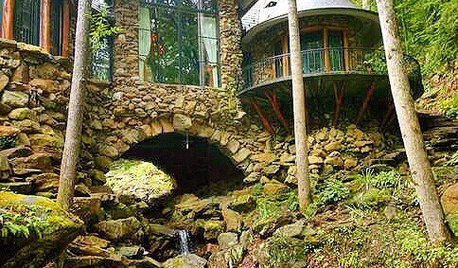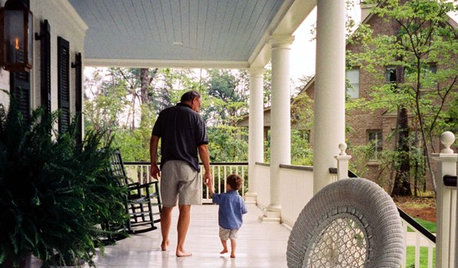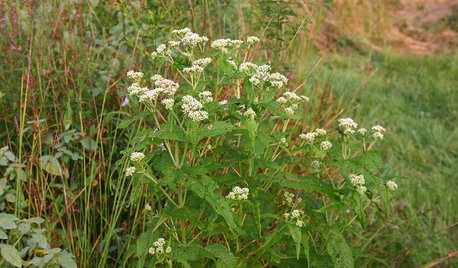Bug B gone
lostsoul62
9 years ago
Related Stories

GARDENING AND LANDSCAPINGBid Bad Garden Bugs Goodbye and Usher In the Good
Give ants their marching orders and send mosquitoes moseying, while creating a garden that draws pollinators and helpful eaters
Full Story
FUN HOUZZ31 True Tales of Remodeling Gone Wild
Drugs, sex, excess — the home design industry is rife with stories that will blow your mind, or at least leave you scratching your head
Full Story
GARDENING AND LANDSCAPINGPorch Life: Banish the Bugs
Don't let insects be the bane of your sweet tea and swing time. These screening and product ideas will help keep bugs at bay on the porch
Full Story
GARDENING GUIDESGreat Design Plant: Common Boneset Helps Good Bugs Thrive
Support bees, moths and butterflies with the nectar of this low-maintenance, versatile and tactile prairie-style plant
Full Story
UPHOLSTERYThe Perks and Perils of Reupholstering Old Furniture
Secondhand upholstered pieces can add character to a room, but beware of bugs, snakes and hidden costs
Full Story

GARDENING AND LANDSCAPINGScreen the Porch for More Living Room (Almost) All Year
Make the Most of Three Seasons With a Personal, Bug-Free Outdoor Oasis
Full Story
HOUZZ TOURSMy Houzz: Reinventing a 1930 Fire Station for Family Life
Don't sound the alarm because the fire engine is gone; this remodeled station now happily hosts fundraisers and two generations of a family
Full Story
DECORATING GUIDESHot Off the Press: Design Sponge At Home
Grace Bonney's blog-gone-book is as practical as it is inspirational
Full Story0

KITCHEN DESIGNKitchen of the Week: Hints of Nautical Style for a Shipshape Kitchen
A designer reinvents her dated kitchen with shades of days gone by and a nod to its seafaring location
Full Story







morpheuspa (6B/7A, E. PA)
rhizo_1 (North AL) zone 7
Related Professionals
Camas Landscape Architects & Landscape Designers · Bell Gardens Landscape Contractors · Duarte Landscape Contractors · El Reno Landscape Contractors · Fort Worth Landscape Contractors · Mahwah Landscape Contractors · North Canton Landscape Contractors · Ramsey Landscape Contractors · Stony Brook Landscape Contractors · Tustin Landscape Contractors · Wentzville Landscape Contractors · West Chester Landscape Contractors · West Haverstraw Landscape Contractors · Crowley Landscape Contractors · Randolph Swimming Pool Buildersdchall_san_antonio
morpheuspa (6B/7A, E. PA)